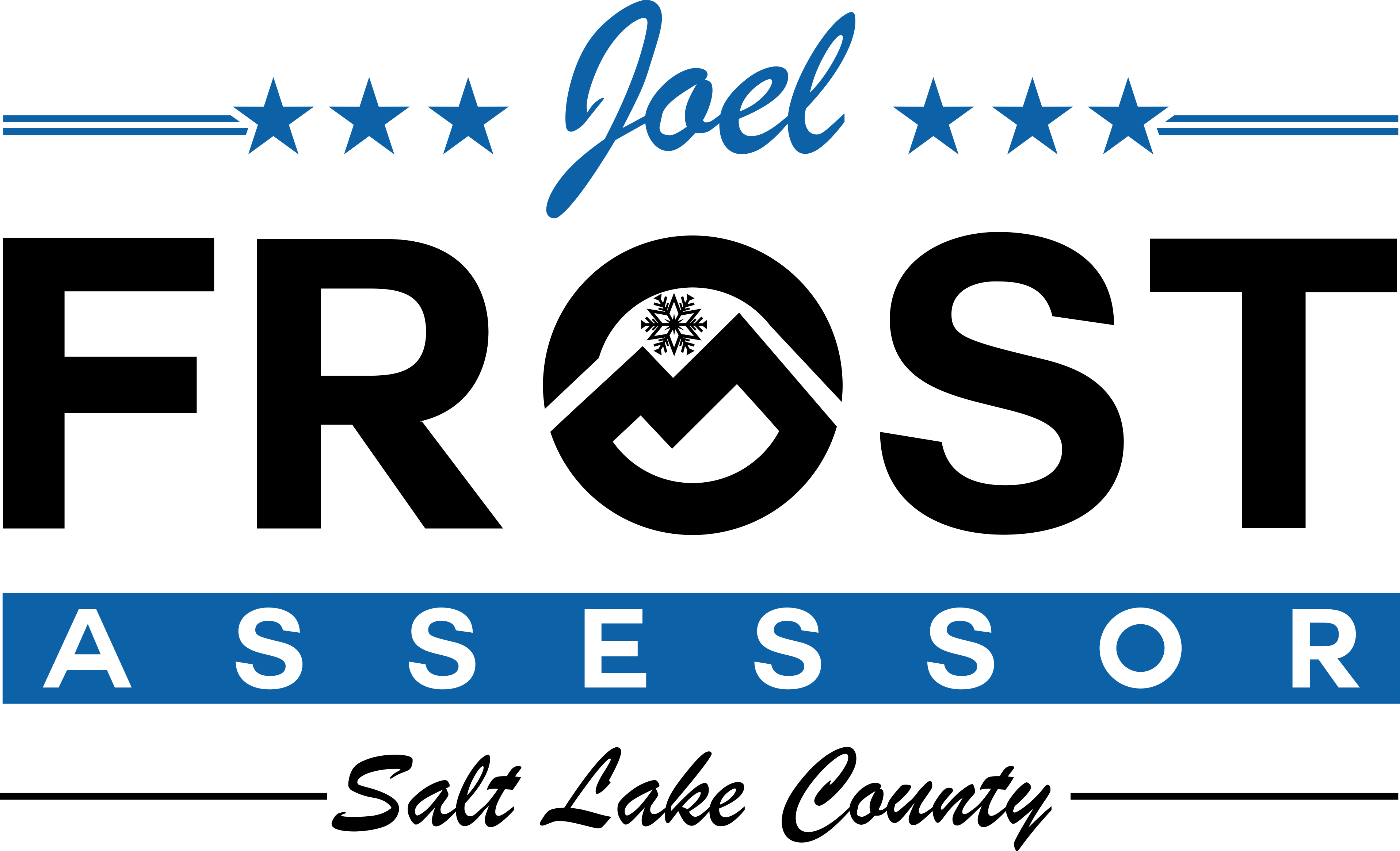Joel’s Vision for a Reformed Assessor’s Office
– Make Taxes Make Sense –
1. Rectify unfair and unbalanced property assessments across the county
Here is a simple statement that shouldn’t be controversial or make me stand out as a candidate: Property taxes should be fair and equal across all property types.
However, this isn’t the case in Salt Lake County. As it stands on average, higher-value properties often have their assessments set below market value, while lower-value properties are assessed at or above market value. This means that lower-value properties often pay a disproportionate share of the tax burden, while higher-value homes and commercial properties often pay less than they should.
Aligning assessments with market values would result in a massive shift towards fairness and equity, benefitting working-class families the most. I’m running for Salt Lake County Assessor to make taxes make sense.
2. Reform and modernize the tax disputing process
Most people don’t realize that property owners can challenge their property tax rates through the state’s Board of Equalization. However, the current process is not accessible or straightforward, causing many to give up. Some claim the low number of disputes reflects good work, but I believe it shows how difficult the process is.
Utah is one of only 11 states that does not disclose real estate prices publicly, making it hard for homeowners to access the data needed to challenge tax assessments. In other states, public sales data is available for free, but in Utah, only realtors or appraisers who pay for the data can access it. This lack of transparency makes it tough for homeowners to know if a dispute is necessary and how to start one.
In short, the tax disputing process is too difficult, and Utah homeowners could use more clarity and assistance. As your Salt Lake County Assessor, I aim to simplify the process. I will integrate best practices from my appraisal company to ensure more guidance and transparency for those disputing their tax rates. My goal is to increase fair disputes and ensure everyone pays their fair share.
3. Modernize technology in the office
(Not a joke, they are using some systems that are as old as I am, and I was born in 1979) As your newly elected Assessor, my top priority would be to swiftly update and modernize the technology used within the office. Implementing cutting-edge software solutions will enable us to streamline processes, enhance efficiency, and ultimately provide superior service to everyone in the County. The current systems are outdated, leading to unnecessary delays and complications that hinder our ability to deliver timely and accurate assessments. Upgrading our systems will also improve our ability to respond to inquiries and process requests from residents more promptly, fostering a more responsive and user-friendly experience for all County residents.
FAQ
My Agenda Is You And What Matters To You And Your Family
Join our newsletter
Stay informed! Sign up for updates on my campaign’s progress toward the Salt Lake County Assessor seat. Join the newsletter!
